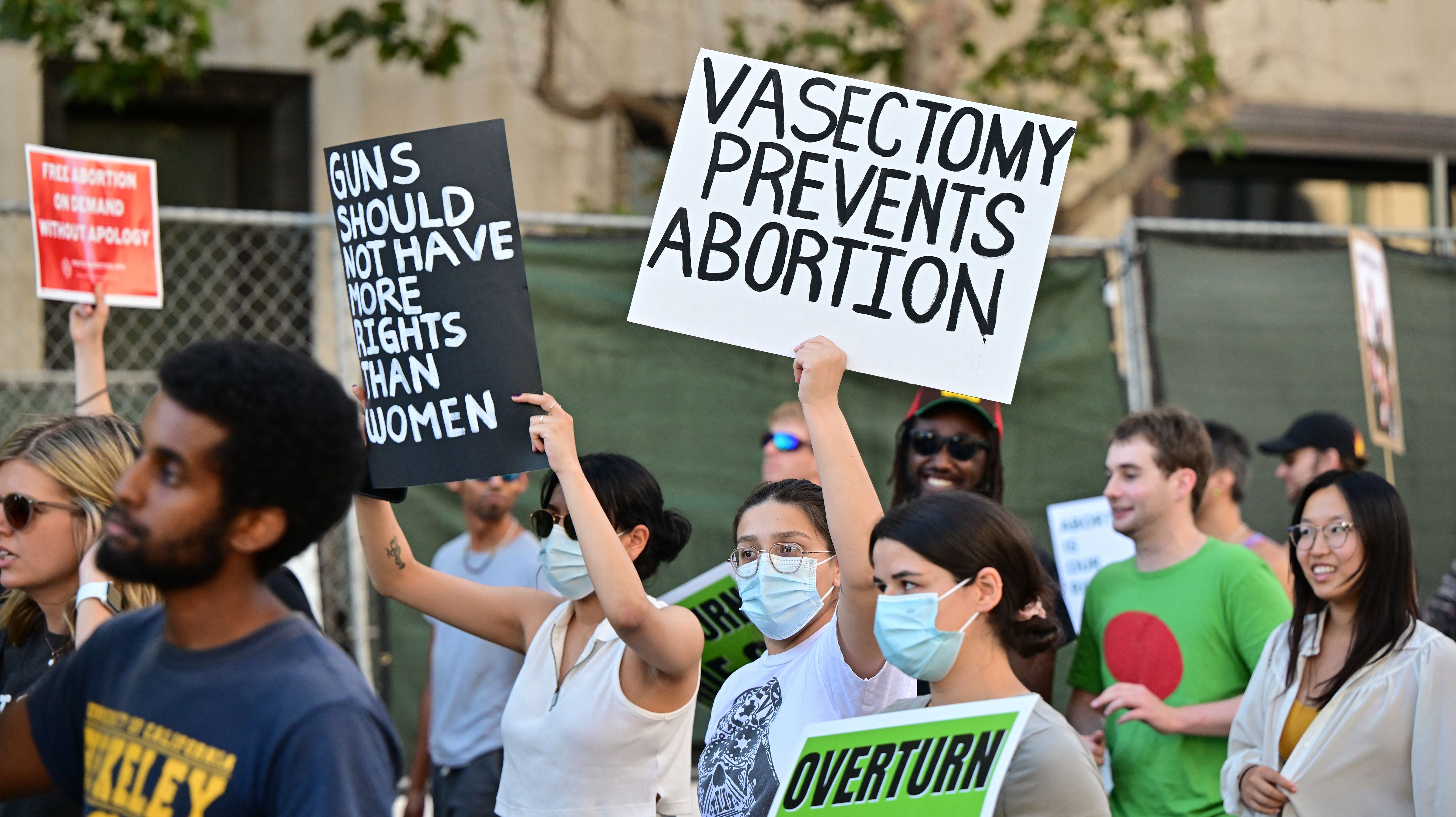The Independent's journalism is supported by our readers. When you purchase through links on our site, we may earn commission.
More snips: Growing number of young men getting vasectomies after Roe v Wade reversal
New data suggests young men are taking a new approach to birth control as abortion access becomes restrictive in some states
Significantly more young men are electing to get vasectomies after the Supreme Court ended Roe v Wade abortion protections across the US, researchers found.
University of Utah investigators said before the 2022 Supreme Court Dobbs decision, 6.2 percent of men under 30 reported obtaining vasectomies, according to a new study published in the American Urological Association. But after, that number jumped to 9.8 percent.
“There was a significant increase in patients <30 years pursuing permanent contraception post-Dobbs. The increased rate of vasectomies post-Dobbs was consistent among states regardless of the legal climate,” the study based on reporting to a national database reported.
In the wake of Roe being overturned, at least 27 states across the country have restricted or outlawed abortions, and some have placed criminal penalties on obtaining one. With more reproductive healthcare providers seeking work out of state to avoid strict laws and lawmakers targeting forms of contraception, the pressure to manage reproductive healthcare is front of mind for many young Americans.
As a result, some urologists suggest, younger men may be seeking more permanent solutions to birth control.

Vasectomies are a medical sterilization procedure that can be done in an outpatient setting under local anesthesia. Though they are supposed to be permanent, they can be reversed.
Dr Kara Watts, a urologist at Montefiore Medical Center in New York City, told The Los Angeles Times that more patients were consulting doctors about a vasectomy, which has contributed to longer waits to get the surgery.
“The numbers would probably be even more dramatic” if wait times were not an issue, Dr Watts told the newspaper.
Dr Esgar Guarin, a vasectomy surgeon in Iowa, The New York Times in 2022 that over a third of the patients he saw were child-free men below the age of 30. When he asked why they were choosing to get a vasectomy now, he said they had a simple answer.
“They’ll say, ‘Well the Supreme Court,’” Dr Guarin told The Times.
Other studies support the findings that younger men are getting vasectomies.
A study published in the National Library of Medicine found that it was “far more likely” men under the age of 30 would seek vasectomies after June 2022.

Dr Sarah Vij, a urologist with Cleveland Clinic, told the Urology Times last year the data suggests men are taking reproductive concerns into their own hands.
“Reproductive decisions are not just affecting women. In many ways, men can be sort of demonized in that discussion. I think these data suggest that men are also doing their part in many ways and that the decisions that we make at a political level regarding reproduction affect every single member of this population,” Dr Vij said.
In general, more men are getting vasectomies. The number of men, aged 18 to 64, who got the procedure jumped 26 percent from 2014 to 2021, according to a University of Chicago study.
But it’s not just men who are seeking a more permanent solution to birth control.
The recent study from The University of Utah found that more young women, aged 18 to 30, elected to get tubal sterilization after Roe was overturned in states where abortions are illegal.
Join our commenting forum
Join thought-provoking conversations, follow other Independent readers and see their replies
Comments